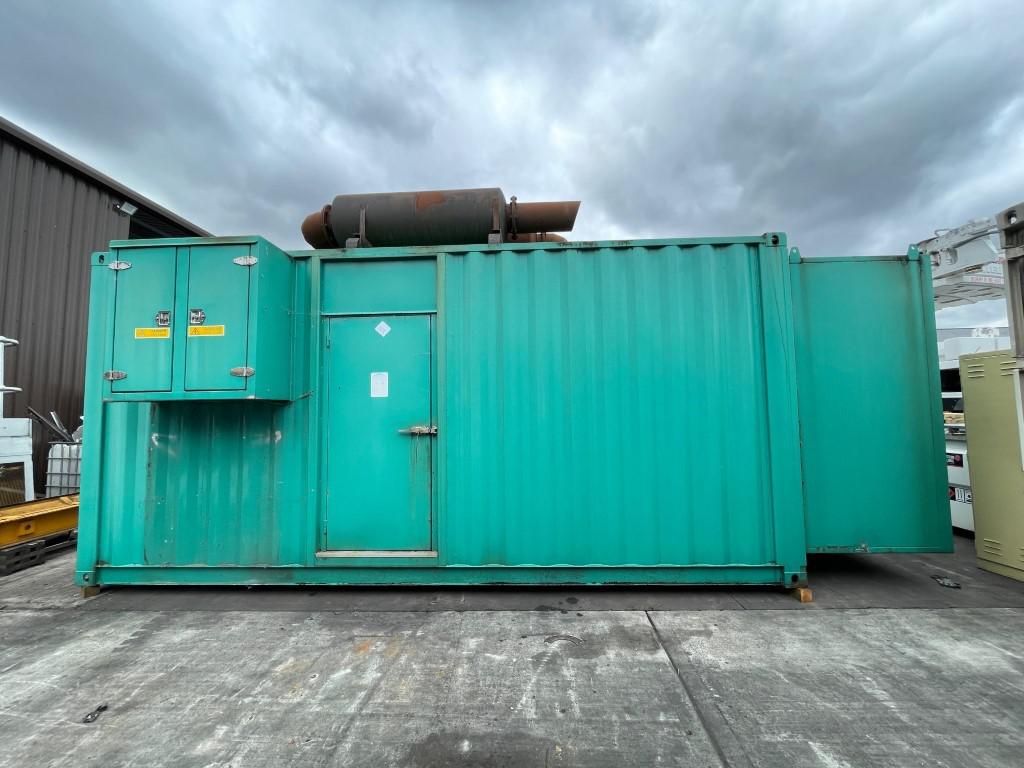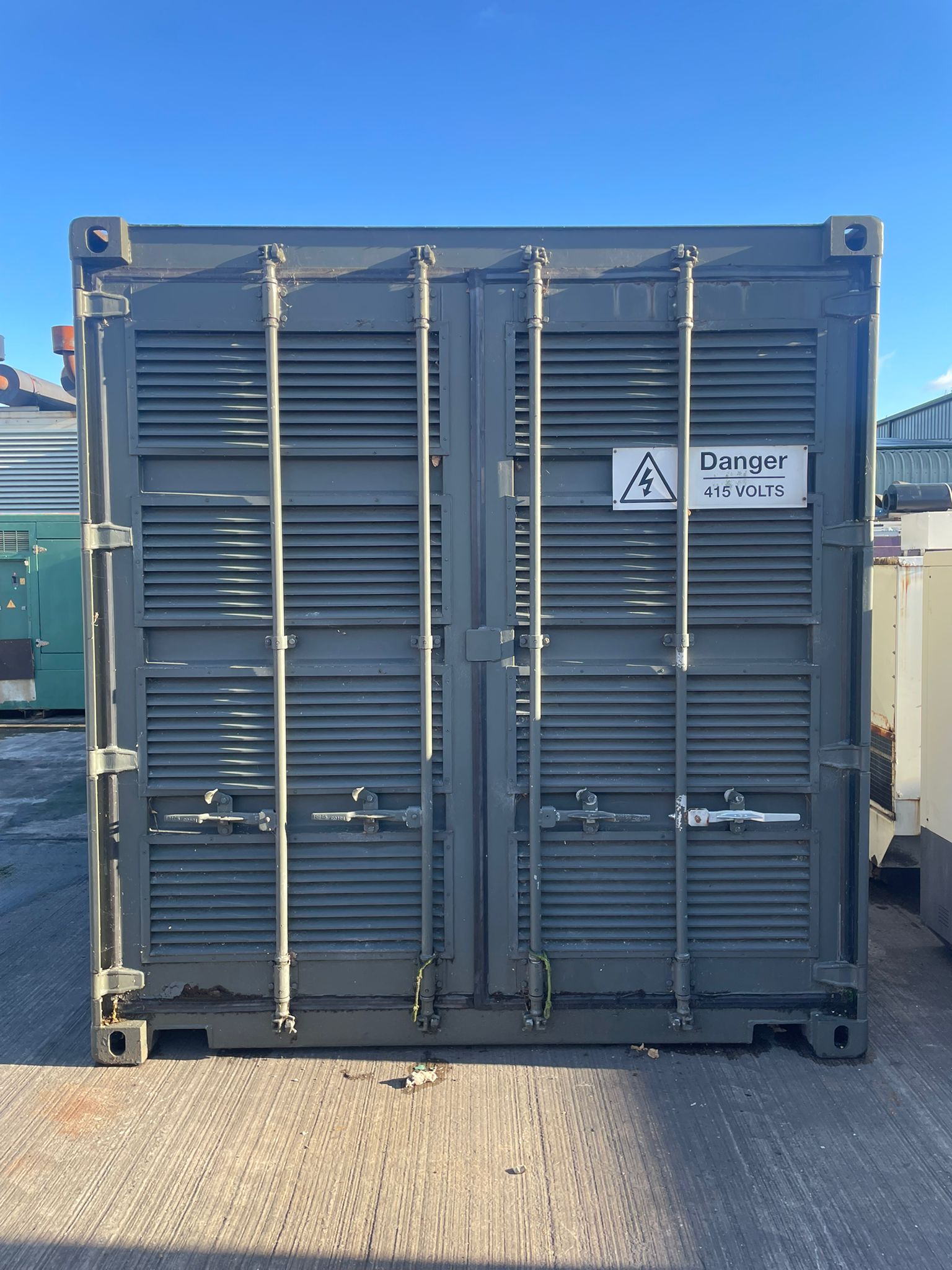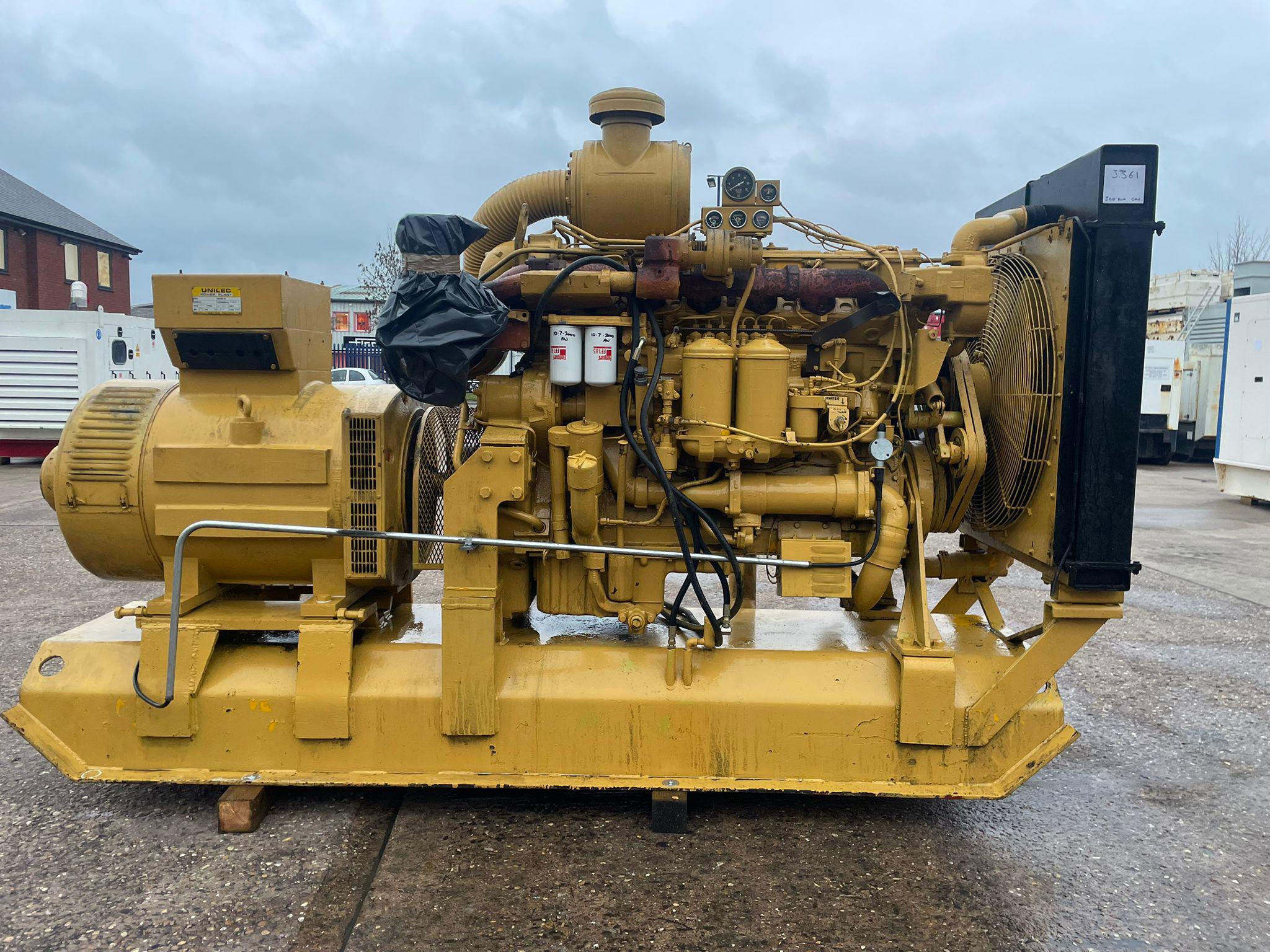Whether you're using your portable generator seasonally, during emergencies, or for on-site power in remote locations, proper storage is essential. At Generators For Export, we sell high-quality used diesel generators that are built to last, but to ensure long-term performance, a little preventative care goes a long way.
Storing your generator safely protects it from corrosion, fuel degradation, electrical faults, and even pests. So whether you’ve picked up a 20kVA unit for site backup or a 60kVA model for exporting abroad, follow these essential tips to store it safely and keep it ready for action.
1. Clean It Before Storing
Before putting your generator into storage, give it a thorough clean. Dust, oil, and fuel residue can build up over time and corrode parts or attract moisture.
- Wipe down the casing and frame.
- Use compressed air to blow out debris from vents and moving parts.
- Check for any oil or fuel leaks, now is the best time to address them.
2. Drain or Stabilise the Fuel
Diesel can degrade over time, especially if left in a warm, humid environment. If you plan to store your generator for longer than 30 days:
- Either drain the fuel tank completely (only do this in a well-ventilated area and dispose of fuel responsibly).
- Or, add a fuel stabiliser to preserve the quality of the fuel. Run the generator for a few minutes to ensure the stabiliser circulates through the system.
- This helps prevent blockages in the injectors and fuel lines, a common cause of no-start issues after long storage periods.
3. Check and Change the Oil
Used generators often come with their own maintenance history, but if you’ve just acquired one or used it heavily, change the oil before storing.
- Used oil can contain contaminants that cause engine damage during storage.
- Always use the oil grade recommended by the manufacturer.
- For models we stock at Generators For Export, including Cummins, SDMO and Perkins units, fresh oil can protect your engine through the off-season.
- Learn more about the generator models we sell on our Used Generators collection page.
4. Remove or Disconnect the Battery
If your generator has an electric start, it likely includes a battery. Disconnect it or remove it completely:
- Clean the terminals and apply terminal grease to prevent corrosion.
- Store the battery separately in a cool, dry place.
- Consider trickle-charging it periodically to maintain charge.
- Neglecting this step is one of the biggest reasons generators fail to start when needed.
5. Cover and Protect It from the Elements
Even though many portable generators are designed to be rugged, they’re not meant to be exposed indefinitely to the elements. Proper storage should include:
- A waterproof, breathable cover that protects from rain but avoids trapping moisture.
- A ventilated, sheltered space like a garage or lockable shed.
- Avoid plastic tarps directly against the metal, they can trap moisture and encourage rust.
- For customers buying used generators for export, we always recommend shipping them in enclosed containers or creating custom covers for transit.
- Read more about transport in our blog post Logistics of Shipping a Diesel Generator.
6. Prevent Rodent and Pest Damage
When a generator sits idle, it can become an attractive hiding place for rodents or insects. Wires, filters, and insulation are all at risk of being chewed or contaminated.
- Block off air intake and exhaust openings with breathable mesh or steel wool.
- Don’t store your generator near food or compost.
- Check periodically during long-term storage for any signs of nesting or damage.
7. Run It Occasionally
Even in storage, it’s good practice to run your generator every 1–2 months for 10–15 minutes. This helps:
- Lubricate the engine.
- Keep the battery charged.
- Identify issues early, before a power emergency hits.
8. Log the Storage Details
Keeping a record of when you stored the generator, what maintenance was done, and when it was last run can help massively:
- Plan future servicing.
- Track oil changes, battery maintenance, and fuel stabilisation.
- Provide records for resale or warranty support.
Common Mistakes to Avoid
- Don’t store a generator with a full fuel tank and no stabiliser.
- Never leave the battery connected for long periods.
- Avoid outdoor storage without proper protection.
- Don’t forget to ventilate the area if you’re running it during storage checks.
At Generators For Export, we want your generator to deliver dependable performance, whether it’s stored for a few weeks or a few months. All our used generators are serviced and tested before sale, and we’re happy to advise you on care, maintenance, and storage, especially for units destined for overseas use.
Need More Help?
Browse our full range of Used Diesel Generators, all export-ready and tested by our expert team. Or visit our Blog for more generator guides, tips, and advice.
Got a specific question? Contact us, Generators For Export, your trusted source for reliable, used diesel generators, ready to power projects across the globe.
Call: +44(0)1386 553344 | Email: sales@gfe.uk.com






